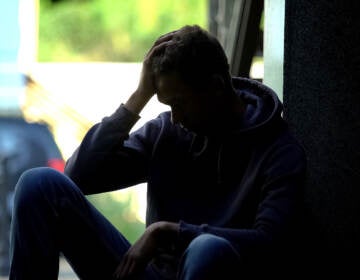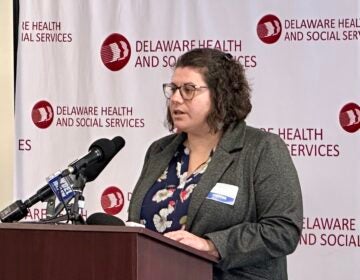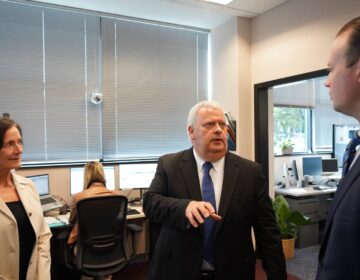‘Unique grief’: New Delaware group aims to offer better support for those left behind after suicide
Suicide deaths have been increasing in recent years. Now, a new effort in Delaware hopes to offer more support to those left behind.
Listen 1:21
(GBALLGIGGSPHOTO/Big Stock)
From Philly and the Pa. suburbs to South Jersey and Delaware, what would you like WHYY News to cover? Let us know!
“You’ve got regret, you’ve got shame, you’ve got guilt, you got all these crazy emotions and feelings and you don’t know what to do with them.”
That’s how Jennifer Antonik described her experience following the death of her husband by suicide.
Dealing with the aftermath of a suicide loss is a multifaceted experience, involving emotions such as grief, sadness, guilt, anger and a persistent longing. These feelings affect not only those closely connected to the departed person but are even more difficult to process when there is insufficient support and resources.
Based on research from the University of Kentucky, the impact of each suicide extends to as many as 30 people, categorized into groups such as long-term suicide bereaved, short-term suicide bereaved, suicide-affected and suicide-exposed.
In Delaware, suicide is the 13th leading cause of death. In 2021, the state recorded 137 deaths by suicide, leaving a lasting impact on up to 4,110 individuals.
Antonik hopes to offer better support than she received, using her own story as a catalyst for motivation.
“When you first find out that your loved one has died by suicide, it’s [a] shock, it’s just utter chaos. You don’t know where to turn, what to do. In my case, how do I tell my kids that their father has just died by suicide.” she said. “My husband died by suicide in September of 2021. We are definitely in a better place with my kids and I, but again it’s a long-term recovery process. Especially my kids who are still growing and getting older, you know that grief changes over time.”
After a few years, she realized the value of her support system, a privilege not everyone shares.
That inspired her to create DJ Alliance to offer support for survivors of suicide loss by connecting them with peers and community resources. In her view, what’s called “post-vention” encompasses diverse forms of support — mental, emotional, peer, or financial — tailored to meet individual needs.
“The overarching purpose is to serve suicide loss survivors. We dont have a good post-vention model right now, post-vention is that support that suicide loss survivors get following a death by suicide,” she said. “If that’s not bad enough, we are at a 65% greater chance of dying by suicide compared to our peers who are grieving other kinds of losses, and we have to ask ourselves why? What do we need to do to better support our community members in their greatest hours of need?”
Part of the organization’s key focus is building relationships with entities like victim services and police departments, and establishing connections with mental health groups like the National Alliance on Mental Illness and other behavioral health organizations.
Their next priority involves creating self-curated care packages for loss survivors. Even without a dedicated office, Antonik envisions expanding the organization’s services by incorporating peer-to-peer support and other supportive activities in the near future.
“We will get them a care package and that’s going to include self-care items as well as resources that are specific to grief suicide prevention and suicide loss, because it’s a very unique grief and they need specific resources,” she said. “We’re working with some other teams to develop a peer-to-peer support system so that we can have individualized care.”
Guiding the organization takes a team effort to make the most impact. She points out that a big part of her team includes people who have experienced the loss of a loved one to suicide, as well as mental health professionals. Despite having a team of seven and about 15-20 volunteers, she’s still looking for donations and more volunteers.
If you are in crisis, call, text or chat with the Suicide and Crisis Lifeline at 988, or contact the Crisis Text Line by texting TALK to 741741.

Get daily updates from WHYY News!
WHYY is your source for fact-based, in-depth journalism and information. As a nonprofit organization, we rely on financial support from readers like you. Please give today.







